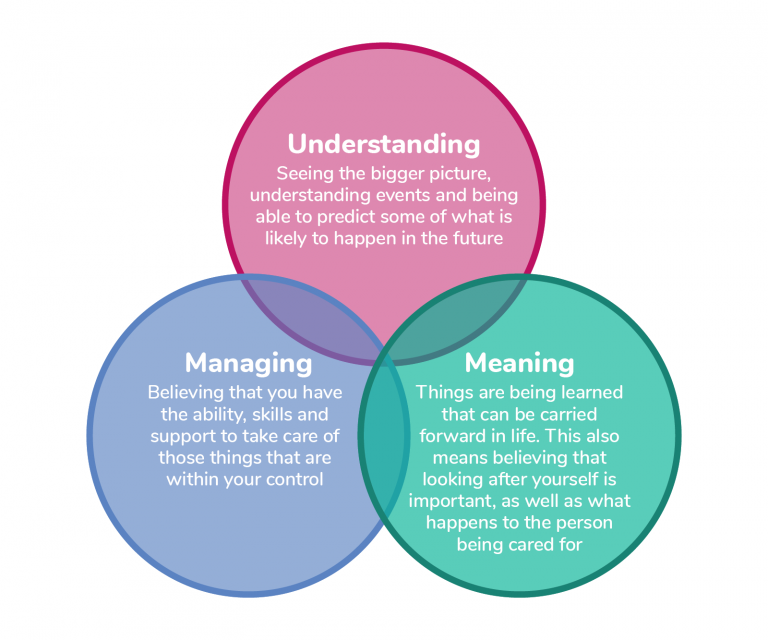Resilience from the perspectives of carers
We know that many people with dementia receive care from family members or other people who have an informal caring role. For the carer, this can be extremely challenging, and high levels of negative thoughts and feelings can occur, such as depression, stress, symptoms of anxiety, and low levels of wellbeing.
Research carried out by Gaugler, Kane and Newcomer[i] in 2007 into resilience and dementia caregiving, proposed a “wear and tear hypothesis”. They suggested that the carer burden is emotional, social, psychological and financial, and that the effects of this burden are cumulative. Other emotions that have been described are fear, anger, disbelief, grief and a sense of isolation and loss, as carers stop their hobbies, social interactions, and jobs.
There are many factors which can make being a carer for someone with dementia hard, but there has been little written about what factors help some carers become resilient. High levels of resilience are associated with lower levels of depression and better physical health and it is known that resilience allows an individual to maintain or even enhance their functioning during times of adversity. Therefore, it is unsurprising that resilience in a carer enhances the quality of the care given to the person with dementia.
A resilience model for dementia caregivers needs to combine social factors, elements of the relationship between the carer and person with dementia, and the carer's personal psychological resources.
It is recognised that to be resilient an individual needs their own psychological strategies along with a network of support they can access if or when they wish to. Access to health and social care as well as social policies such as employment legislation, can also help build a person’s resilience.
Interventions that enhance resilience for carers
The literature that looks at the effectiveness of resilience-based interventions for carers of people with dementia is sparse and most of the research has focused on the paid carer work force.
In summary, the literature below suggests that resilience in carers can be enhanced by a multi-level approach that addresses:
- psychological wellbeing
- emotional support
- education about dementia
- an understanding of how to ‘tap into’ inner strengths and resources to feel more confident and able
- a sense of belonging and connection with other carers
- self-care
Boots et al’s (2013)[i] research tells us that online interventions that focus solely on one dimension of resilience such as education about dementia are ineffective. Interventions should focus on more than one aspect of resilience, such as being able to connect socially on a forum with other carers, receive information about dementia, and be provided with strategies on how to give care to the person with dementia. These types of support can have positive effects on confidence, depression, self-efficacy, and the general ‘burden’ of being a carer. Carers particularly seem to appreciate the contact with other carers via a forum to help reduce their isolation and share and validate their feelings and experiences. This has also been observed and talked about by carers who access DCC support.
Gray (2017)[ii] wrote a paper exploring whether her Resilience and Wellbeing Programme (a workforce intervention for front-line staff who were at risk of stress and burn-out) could be adapted for informal carers. This programme suggests a Sense of Coherence (SoC) model that enhances resilience and wellbeing. It was proposed that a sense of coherence firstly involves being able to comprehend the caring situation (seeing the bigger picture, understanding events and being able to predict some of what is likely to happen in in the future). Secondly, it requires the ability to manage the caring situation (believing that they have the ability, skills and support to take care of those things that are within their control). Finally, it is necessary to find meaning in the caring situation. This means believing that looking after yourself is important, as well as what happens to the person being cared for, and having a belief that through this caring experience, things are being learned that can be carried forward in life. This study found that the programme was indeed successfully adapted for carers, who experienced an improvement in their psychological wellbeing, reduced isolation and increased skills.

